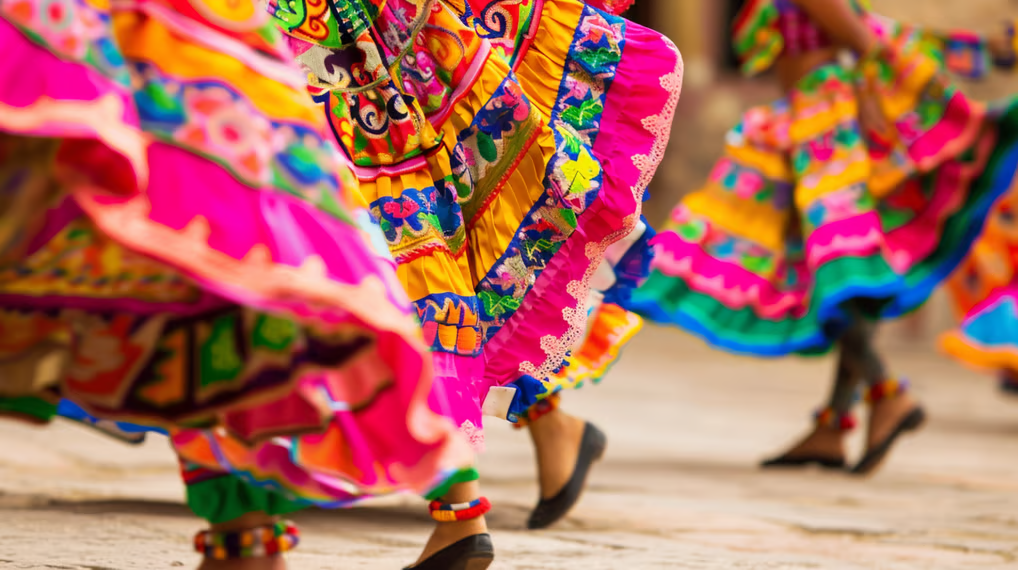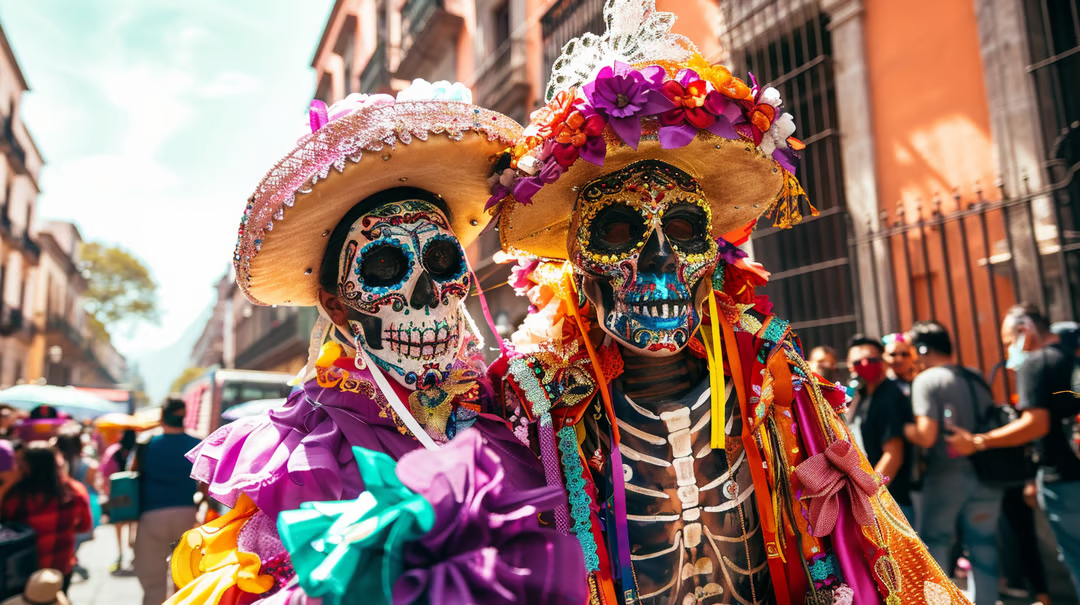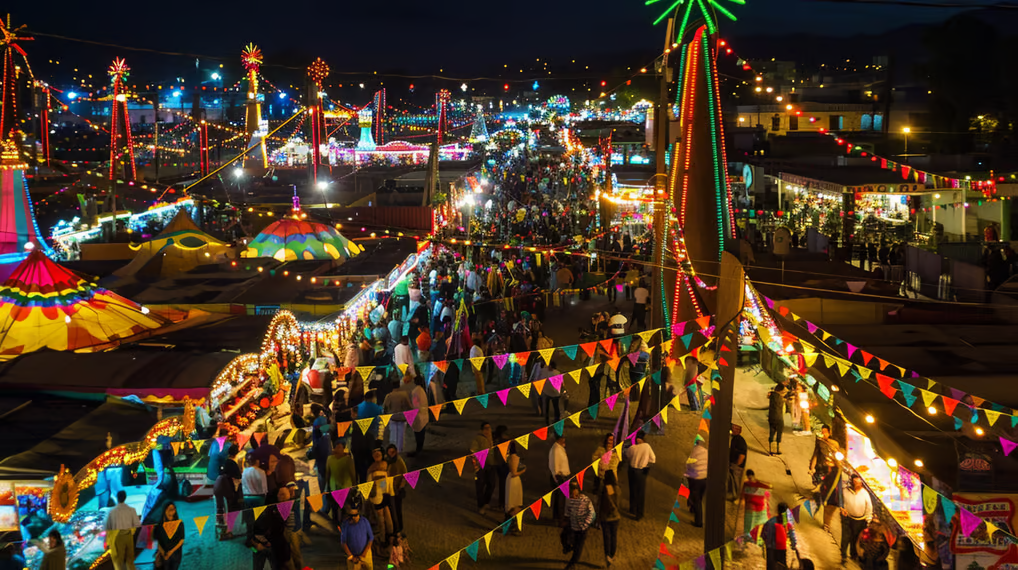Mexico's Vibrant Festivals: A Cultural Expedition
Dive into the heart of Mexico's cultural identity on a vibrant expedition through its festivals, where lively music, vivid costumes, and age-old traditions come together in an exuberant celebration of life and heritage.

Mexico's vibrant festivals are a captivating showcase of the country's rich cultural heritage. From colorful processions to lively music and dance, these celebrations offer a unique opportunity to immerse oneself in the traditions and customs of Mexico. In this article, we will delve into the cultural significance of Mexican festivals, explore the diverse range of festivities, and provide useful tips for planning your own cultural expedition. Let's embark on this exciting journey and discover the magic of Mexico's festivals!
Understanding the Cultural Significance of Mexican Festivals
Mexican festivals play a crucial role in the country's social fabric. They serve as a platform for preserving traditions, strengthening community bonds, and showcasing Mexico's rich cultural heritage. Throughout history, festivals have been an important means for Mexicans to express their religious devotion, honor their ancestors, and celebrate their identity as a nation.
From religious rituals to annual commemorative events, festivals provide a glimpse into the deeply-rooted beliefs and customs of the Mexican people. They serve as a reminder of Mexico's diverse cultural heritage, with influences from indigenous traditions, Catholicism, and other cultural influences.
The Role of Festivals in Mexican Society
In Mexican society, festivals are more than just joyful gatherings; they are a way of life. These celebrations bring communities together, fostering a sense of unity and shared purpose. They create a space for people to connect with their roots, celebrate their heritage, and honor their ancestors.
Moreover, festivals also play a significant role in promoting social cohesion and cultural diversity. They provide an opportunity for different communities to come together and celebrate their shared values, while also embracing their unique traditions and customs.
One example of such festivals is the Day of the Dead, or Día de los Muertos, which is celebrated throughout Mexico. This unique festival is a vibrant and colorful commemoration of deceased loved ones. Families gather to build altars adorned with marigolds, sugar skulls, and photographs of their departed relatives. They believe that during this time, the spirits of their loved ones return to visit them, and they welcome them with offerings of their favorite foods and drinks.
The Historical Roots of Mexican Festivals
Mexican festivals have deep historical roots that date back centuries. Many of these celebrations can be traced back to pre-Hispanic times when indigenous cultures had their own unique ways of commemorating important events and seasons.
With the arrival of Spanish conquistadors in the 16th century, Catholicism was introduced to Mexico, which led to the fusion of indigenous traditions with Catholic practices. This fusion gave birth to a vibrant and unique array of religious festivals that continue to be celebrated today.
One such festival is the Guelaguetza, which takes place in the city of Oaxaca. This festival is a testament to the blending of indigenous and Spanish cultures. It showcases traditional dances, music, and costumes, highlighting the diversity of indigenous communities in the region. The Guelaguetza is a celebration of unity and cultural pride, as people from different communities come together to share their traditions and celebrate their shared heritage.
Today, Mexican festivals stand as a testament to the resilience and adaptability of Mexican culture, blending the old and the new in a truly captivating manner. They continue to be a source of pride and joy for the Mexican people, showcasing their vibrant traditions and rich cultural heritage to the world.

The Colorful Spectrum of Mexican Festivals
One cannot fully appreciate the diversity of Mexican festivals without exploring the different types of celebrations that take place throughout the country. From religious processions to vibrant regional festivities, Mexican festivals never fail to captivate the senses and ignite the spirit of celebration.
Religious Festivals in Mexico
Mexico's religious festivals are a testament to the country's strong Catholic heritage. These celebrations combine elements of ancient indigenous rituals with Catholic traditions, creating a unique and deeply spiritual experience.
One of the most iconic religious festivals in Mexico is the Day of the Dead, celebrated on November 2nd. During this time, families gather to honor the souls of their departed loved ones with colorful altars, marigold flowers, and traditional foods such as sugar skulls and pan de muerto.
Another significant religious festival is Semana Santa (Holy Week), which takes place in the week leading up to Easter Sunday. Throughout the country, elaborate processions, reenactments of biblical events, and heartfelt ceremonies take place, attracting both locals and international visitors.
Regional Festivals and Celebrations
Aside from religious festivals, Mexico is also home to a myriad of regional celebrations that showcase the unique cultural identity of each state and region. From the lively Carnaval festivities in Veracruz to the mystical Guelaguetza festival in Oaxaca, each region has its own distinct traditions and rituals.
In San Miguel de Allende, the Fiesta de San Miguel Arcangel is a must-see event. This vibrant celebration honors the patron saint of the city and features parades, traditional dances, and fireworks.
If you find yourself in Mexico City during September, don't miss the Independence Day celebrations. Witness the energetic parades, taste traditional Mexican dishes, and experience the patriotic spirit that fills the air.
The Unforgettable Experience of Mexican Festivals
Attending a Mexican festival is an immersive experience that engages all the senses. From the vibrant music and dance performances to the stunning costumes and mouthwatering festival foods, there is something for everyone to enjoy.
The Sensory Overload: Music, Dance, and Costumes
Music is the heartbeat of Mexican festivals. The energetic rhythms of mariachi bands, the mesmerizing beats of traditional folk dances, and the soul-stirring melodies of indigenous rituals create an atmosphere of jubilation and excitement.
Whether it's the rhythmic zapateado of Veracruz's son jarocho or the intricate footwork of the Jarabe Tapatío in Jalisco, traditional Mexican dances are a visual feast for the eyes. Dancers adorned in colorful, intricate costumes whirl and twirl, captivating audiences with their skill and grace.
The Gastronomic Journey: Festival Foods and Drinks
No Mexican festival is complete without a feast of delicious foods and drinks. From savory tamales to spicy chiles en nogada, festival foods offer a tantalizing glimpse into the diverse culinary traditions of Mexico.
Wash it all down with traditional Mexican beverages such as refreshing agua frescas, tangy margaritas, or traditional pulque. Every bite and sip will transport you deeper into the vibrant tapestry of Mexican culture.

Planning Your Cultural Expedition to Mexican Festivals
If you're eager to embark on a cultural expedition to experience the magic of Mexican festivals firsthand, here are some essential tips and considerations to help you plan your journey.
Best Time to Visit for Festival Enthusiasts
Mexico's festival calendar is replete with exciting events throughout the year, but some occasions are particularly noteworthy. The Day of the Dead in November, Semana Santa in spring, and Independence Day in September are just a few of the prime festival times to consider.
Research the specific festivals that interest you and plan your trip accordingly. Be sure to book accommodations well in advance, as festival periods tend to attract large crowds.
Tips for Immersing Yourself in the Festivities
To truly make the most of your festival experience, embrace the local customs and participate in the festivities. Don't be afraid to join the colorful processions, dance to the lively music, and try traditional foods.
Respect the traditions and practices of the local communities you visit. Be mindful of cultural sensitivities and follow any guidelines or restrictions that may apply during the festivals.
The Impact of Festivals on Mexico's Tourism
Mexico's festivals not only captivate the hearts of the locals but also attract a significant number of international visitors. These vibrant celebrations have a profound impact on the country's tourism industry.
Economic Contributions of Festivals
The influx of tourists during festival periods provides a boost to local businesses, including hotels, restaurants, and shops. The economic impact of festivals extends beyond temporary employment opportunities, as it helps stimulate the local economy and promote sustainable tourism.
Festivals as a Draw for International Visitors
Mexico's festivals serve as a powerful draw for international tourists, who are mesmerized by the country's vibrant culture and desire to experience it firsthand. The opportunity to witness unique traditions, taste authentic cuisine, and immerse oneself in the vibrant atmosphere of Mexican festivals makes for an unforgettable journey.
As you can see, Mexico's festivals offer a once-in-a-lifetime cultural expedition that will leave you with memories that will last a lifetime. So, pack your bags, prepare your senses, and embark on a journey to Mexico to experience the magic of these vibrant celebrations. Whether you find yourself dancing through the streets of Oaxaca or paying homage to departed loved ones during the Day of the Dead, Mexico's festivals are a sensory feast that will ignite your spirit of adventure and deepen your appreciation for the country's remarkable cultural heritage.
Book your accommodations, plan your itinerary, and get ready for an unforgettable cultural extravaganza. Mexico is waiting to share its vibrant festivals with you!